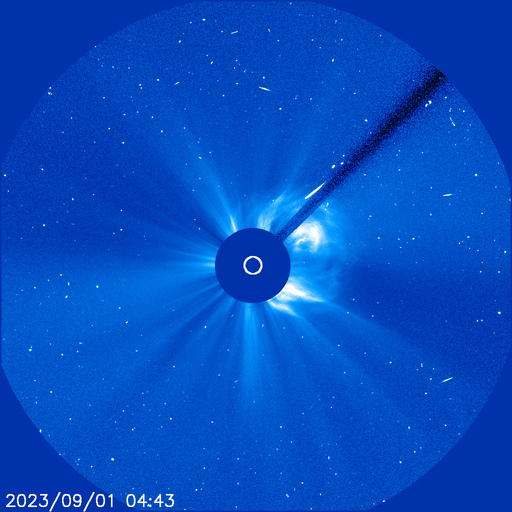Space Weather Alert - 1st September 2023
What Has Happened?
A partial-halo coronal mass ejection (CME) lifted from the Sun at approximately 04:00 UT on 1st September. This fast-moving CME is expected to arrive late on 2nd or early on 3rd September. An earlier CME from 30th August may produce a glancing blow on 2nd September. The combination of these CMEs is likely to enhance geomagnetic activity with significant STORM periods anticipated, following their arrival.
Assuming clear, dark skies, there is a greater chance of seeing the aurora on the 2nd and 3rd of September. Those in Scotland, northern England and Northern Ireland have a better chance if the weather is favourable on those nights.
Sign-up to receive Geomagnetic Disturbance Alert emails.
Follow us on Twitter:
Follow @BGSauroraAlert for more occasional aurora alerts.
Follow @BGSspaceWeather for daily space weather forecasts.
Glossary
- BGS
- The British Geological Survey is a geoscience research centre that is part of UK Research and Innovation (UKRI) and affiliated to the Natural Environment Research Council (NERC).
- CME or Coronal Mass Ejection
- The eruption of a portion of the outer atmosphere of the Sun into space, caused by rapid changes in its magnetic field. Often occurs along with a solar flare.


